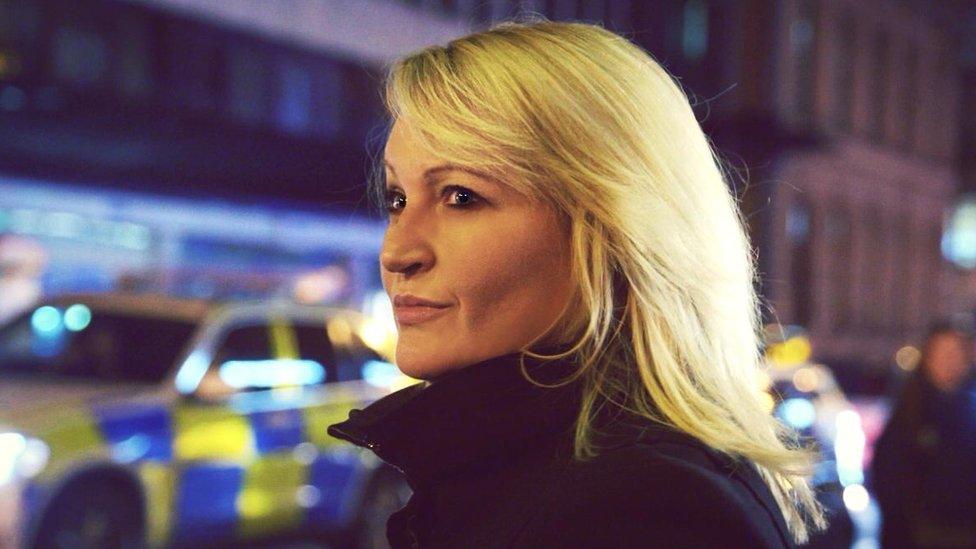Scotland bids to be 'world leader' in women's health
- Published
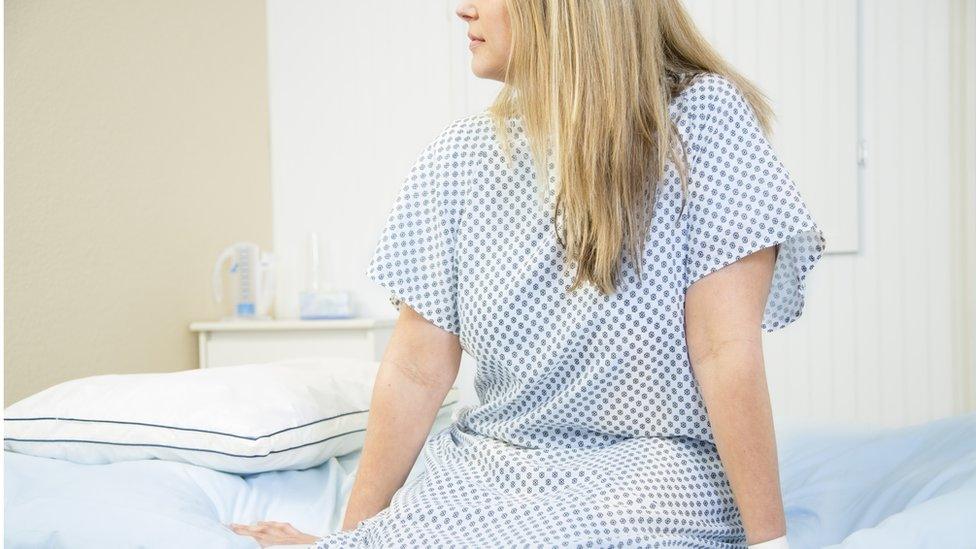
Scotland is bidding to become a "world leader" in addressing women's health inequalities.
A new plan includes recommendations for better endometriosis diagnosis and treatment, and specialist menopause services.
It also calls for a drive to create greater awareness of heart disease symptoms and risks.
Women's Health Minister Maree Todd said the strategy would drive wider change across health and social care services.
She added that when women and girls are supported to lead healthy lives and fulfil their potential, the whole of society benefits.
Ms Todd told BBC Radio's Good Morning Scotland programme: "The reality is we live in a men's world and when we look at systems of all sorts around the world we see inequality for women.
"I'm very excited about this. We have listened to what women are telling us and we are determined to correct that."
The plan, which was drafted with input from the real-life experiences of women, sets out 66 actions.
They include:
Appointing a national women's health champion and a women's health lead in every NHS board
Establishing a women's health research fund and providing a central platform for information on NHS Inform
Commissioning endometriosis research to develop better treatment, management and find a cure
And developing a menopause and menstrual health workplace policy and promoting it across the public, private and third sector

'It took years for anyone to listen'
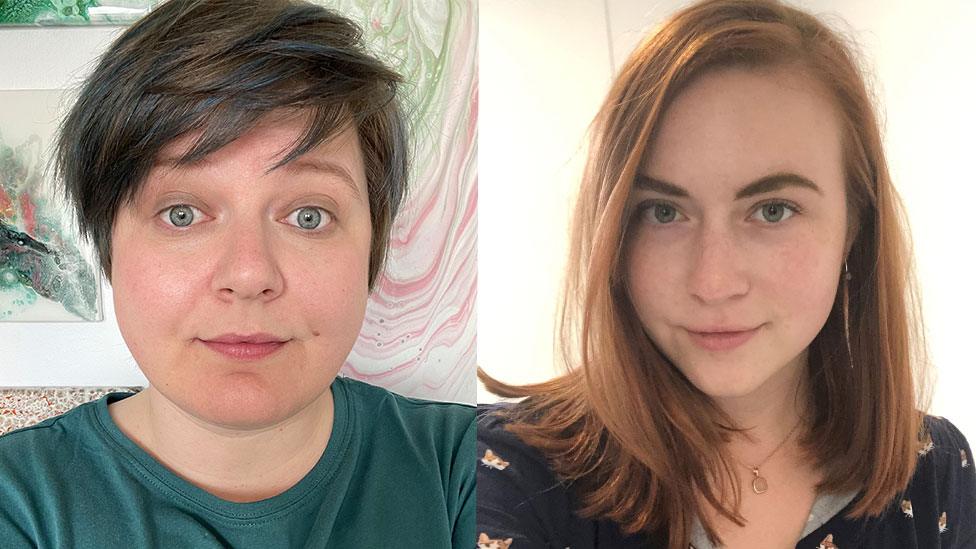
Niki Bryden and Britnee Leyson recently shared their experiences of fighting to get a proper diagnosis
The development is designed to prevent a repeat of experiences like those some women have reported.
Niki Bryden, 34, suffered from a large fibroid - a non-cancerous growth in or around the womb. She told the BBC: "It took about two years for anyone to listen to me so they just sent me home.
"At one point I thought I was dying and I was like 'I don't really think that would be that bad' because I don't know how to live like this."
And Brittnee Leyson described how it took seven years to diagnose endometriosis - a debilitating gynaecological condition which affects one in 10 women. She said the women's health plan was "a long overdue step".

Ms Todd said: "Together, we are working to address inequalities in all aspects of health that women are facing.
"The women's health plan signals our ambition and determination to see change for women in Scotland, for their health and for their role in society.
"We want Scotland to be a world leader when it comes to women's health."
Dr Pat O'Brien, vice president of the Royal College of Obstetricians and Gynaecologists, described the 68-page document as "ambitious and detailed" and welcomed its aim to prioritise the health and wellbeing of women throughout every stage of their lives.
"This plan has been developed with extensive consultation with a diverse group of women, ensuring that the health service is inclusive and respectful, and can work to focus on closing inequalities in women's health experience and outcomes," he added.
'Women can face disadvantages'
James Jopling, head of the British Heart Foundation Scotland, said coronary heart disease kills nearly three times as many as women as breast cancer.
He said: "At every stage - from the moment they experience symptoms through to their cardiac rehabilitation - women with heart disease can face disadvantages.
"We need to improve understanding of the risks for women and increase their awareness of the symptoms of a heart attack.
"We must also promote equality of treatment for women with heart disease within the healthcare system, at every point in their journey."
'Men are the default setting'
Maree Todd spoke of how women suffering heart attacks are said to have "atypical presentation".
She said: "Women don't present atypically, they present like women do. This just reflects that men are the default setting. What happens after a heart attack is, there is a battery of drugs that are usually used to prevent a further heart attack and what we find is women are not prescribed those.
"So there are real ingrained inequalities just because we have built, over millenia, a man's world."
Irene Oldfather, of the Health and Social Care Alliance Scotland, said the plan had the potential to narrow the gender equality gap.
She added: "Women want to see a system which provides them flexibility around their lives, both when accessing appointments and for treatment and support options.
"They want to be taken seriously no matter their concern, without feeling judged for their skin colour, culture or choices.

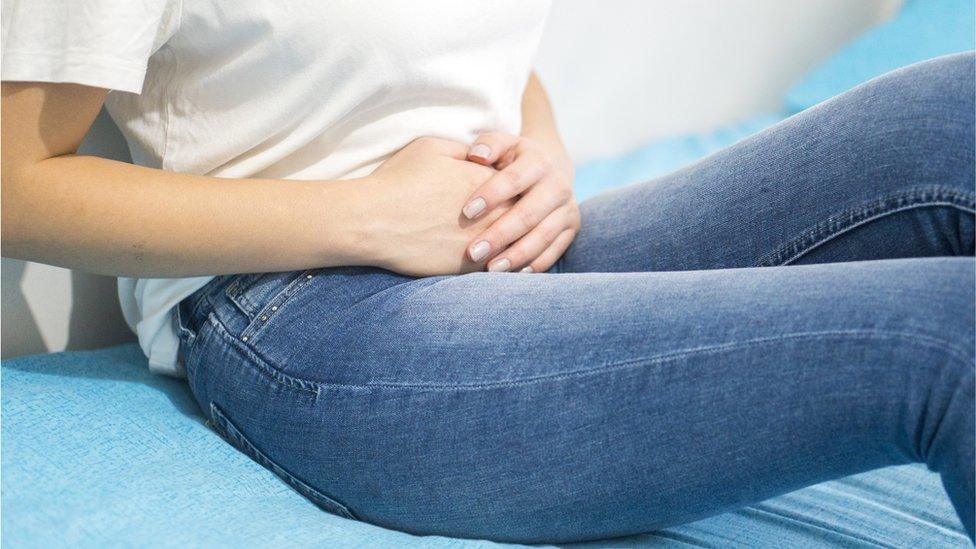
What is endometriosis?
Where tissue like that found in the lining of the womb grows elsewhere in the body, often around the reproductive organs, bowel and bladder.
Like the womb lining, the tissue builds up and bleeds every month but, with no way to escape the body, the blood is trapped, leading to inflammation, pain and formation of scar tissue.
For some women there are no symptoms, but for others it can cause chronic pelvic pain, painful sex, bowel and bladder problems and painful periods., external
In the UK it takes an average of seven and a half years to be diagnosed.
There is no cure, but treatments including hormone therapy, pain relief or surgery can reduce symptoms.

Related topics
- Published5 August 2021

- Attribution
- Published9 March 2021
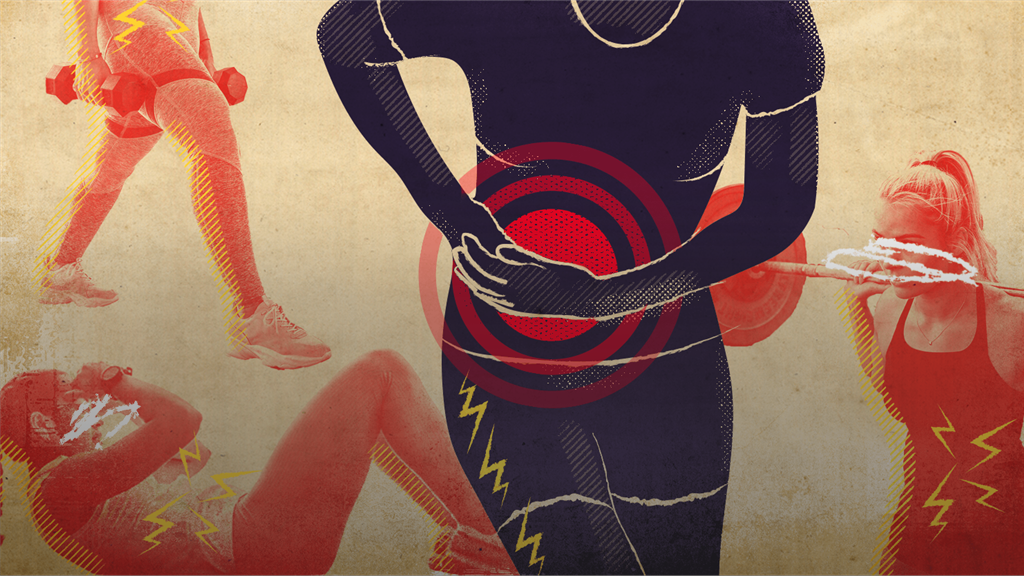
- Published5 March 2021

- Published28 February 2020
